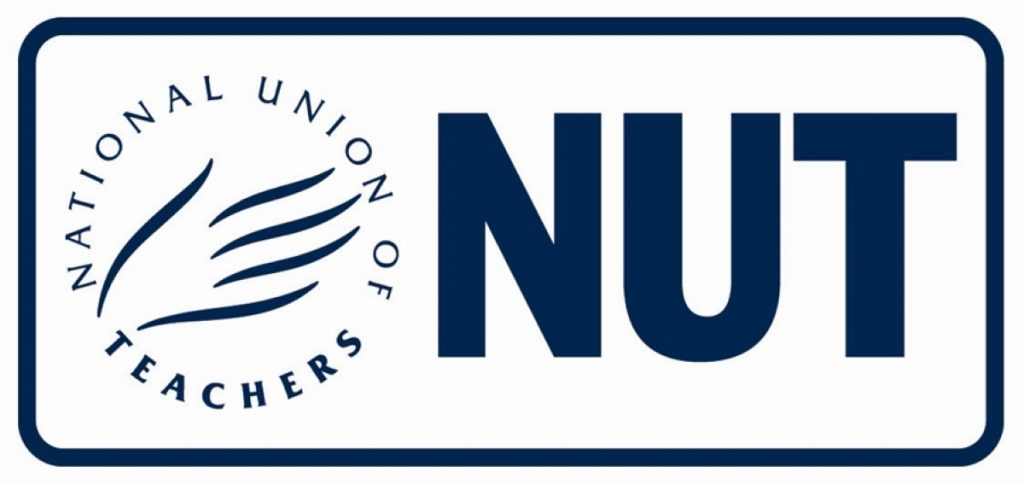Celebrities give views of GCSE reform to the NUT
High profile figures such as Sir David Hare and Sir Richard Eyre have given written submissions to the NUT with their opinions on the Government’s proposals for Key Stage 4 examination reform. They will be included in the Union’s response to the DfE consultation closing on Monday 10 December.
Sir David Hare has called the proposals “Insanity, and worse – class-reinforcing insanity’, Sir Richard Eyre ‘What’s next? Cultural apartheid?”, Neil Constable, Chief Executive of The Globe: “We cannot now deprive an entire generation of children of the cultural skills that they will need.” Julie Walters: “Creativity is as important in education as literacy and determining somebody’s intelligence shouldn’t be limited merely to academic subjects.” Sir Nicholas Serota, Director, Tate: “The omission of arts subjects from the English Baccalaureate has already resulted in art teachers losing their jobs, applications for PGCE courses in the arts declining, and children being channelled away from the arts.”
Full responses below*
Christine Blower, General Secretary of the National Union of Teachers, the largest teachers’ union, said: “It is essential that for once Michael Gove listens to the ever increasing list of people and organisations telling him that his plans for examination reform are simply not right. Whilst not being opposed to reform of the examination system, nor to the drive to raise standards, schools need to be able to offer pupils a broad and balanced curriculum. Proposals for the EBC and the Ebacc will make this very difficult. The NUT and NAHT have written to Michael Gove expressing our concerns (1) and have launched a petition www.ebaccpetition.org.uk calling for the consultation to be wider.”
(1) http://www.teachers.org.uk/files/letter-to-michael-gove.pdf
END pr197-2012
For further information contact Caroline Cowie on 0207 380 4706/ 07879480061
Please click here if you wish to unsubscribe from this mailing list.
*Responses from the creative community.
Response from Sir David Hare
“It seems hardly believable at a time when local authorities are known to be strapped for cash and cutting back on inspiring visits to dance, music and theatre events, that the Government should meanwhile take away from less privileged children the chance to access these life-changing subjects through a central curriculum. The new proposals for the English Baccalaureate are the very opposite of joined-up government. The rigidity of the proposed list of subjects means that the arts will now be denied to the very pupils who have least chance of exposure to them in their daily lives. Insanity, and worse – class-reinforcing insanity.”
Response from Sir Richard Eyre
“You don’t have to be a teacher to know that music makes school children better at maths and that drama makes our society more tolerant. You don’t have to be an economist to observe that the cultural industries are of enormous and growing value to the British economy or that a healthy cultural realm is a powerful reason for Britain's magnetism as a tourist destination. You don’t have to be a diplomat to testify that British cultural excellence is a valuable element of British identity abroad. You just have to be human to experience the fact that the arts illuminate things that make us aware of our common humanity. By diminishing the opportunity to study the arts – by excluding them from the core subjects of the curriculum – we condemn future generations to a life a little less than human and, in time, the already large gap between those for whom the arts are a part of life and those who feel excluded from them will widen to an unbridgeable divide. What’s next? Cultural apartheid.”
Response from Neil Constable, Chief Executive, Shakespeare’s Globe
“At a time when we have just been celebrating one of the world’s playwrights with the World Shakespeare Festival and when our creative and cultural skills have shone around the world with the Olympic and Paralympic Games ceremonies, it appears bizarre for Government to now marginalise the arts and stop students enjoying the opportunity for a fully rounded education. At the Globe we welcome over 100,000 schoolchildren annually and enrich their study and enjoyment of Shakespeare. We cannot now deprive an entire generation of children of the cultural skills that they will need.”
Response from Ken Loach:
“It is sad and short-sighted that creative subjects are to be excluded from the Baccalaureate. Many students find confidence and fulfillment in music, art or drama. Other work is then supported and enriched. If these courses do not contribute to the Baccalaureate then there will be pressure to drop them. This will diminish not only the students themselves but the wider society.”
Response from Julie Walters OBE
“Considering that we have just had the Olympics celebrating our cultural heritage and showcasing bright new talent, it seems ironic that the Government wishes to undermine Creativity and the Arts by side-lining them from the curriculum. Creativity is as important in education as literacy and determining somebody’s intelligence shouldn’t be limited merely to academic subjects. We should nurture creativity and its power to encourage innovation. The Arts has the power to liberate people as well as to entertain.”
Response from Sir Nicholas Serota, Director, Tate.
“The facts tell a worrying story. The omission of arts subjects from the English Baccalaureate has already resulted in art teachers losing their jobs, applications for PGCE courses in the arts declining, and children being channelled away from the arts. The arts are a vital part of a rounded education, and that should be available to all. Business leaders, teachers, arts leaders, designers and others are united in their concern that the cost of the arts not being securely in the curriculum now is the UK's creativity in the future.”





-01.png)